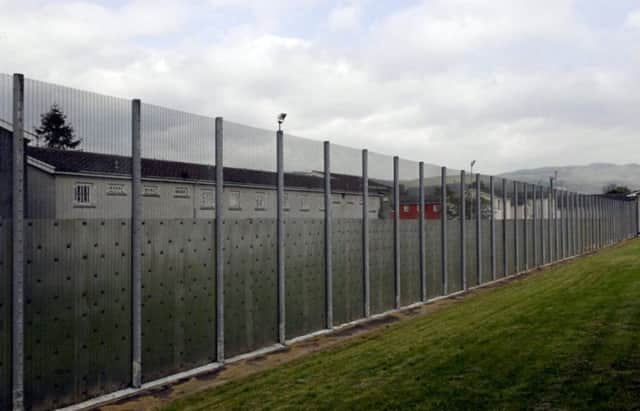Mother of teen who killed herself in jail hits out over missing documents


Dionne Kennedy, 19, hanged herself with a sheet after being placed in a “normal” cell without regular night-time checks, rather than under observation in a ligature-proof safe room with tear-proof bedding and clothing.
A fatal accident inquiry heard that two forms, which should have given details of how and why staff had concluded Dionne was “not at risk” of suicide, had not been found.
Advertisement
Hide AdAdvertisement
Hide AdThe inquiry heard that under the Scottish Prison Service’s suicide prevention policy, the risk assessment forms should have been “routinely” completed when troubled Dionne, from Kilwinning, Ayrshire, was remanded to Cornton Vale Prison, Stirling, after her final two court appearances, in Kilmarnock in October 2014.
The forms require jail reception staff -- at the time, a prison officer and a nurse -- to detail whether an incoming prisoner is at risk of suicide and should be kept under observation.
Rosie Cook, depute fiscal at the inquiry, said the assessments were not recovered from the jail by police investigating Dionne’s death, and were therefore not among the Crown papers at the inquiry.
Miss Cook said: “As part of their investigation, the police pick up what’s colloquially known as ‘the prison pack’ and this is the sum of their collection.”
Advertisement
Hide AdAdvertisement
Hide AdSolicitor Lucy Thornton, for the Scottish Prison Service, said that the documents’ absence only became known shortly before the inquiry, at Stirling Sheriff Court, opened this week.
She said: “I don’t know if they have been missed and got lost at some stage, but that’s only speculation.”
She said a search of the jail had revealed they were not there, and the prison service would now have to comb its archives in a “last chance” attempt to find them.
Solicitor Gregor Forbes, for Miss Kennedy’s family, said: “Without them we simply don’t know if a risk assessment was carried out.”
Advertisement
Hide AdAdvertisement
Hide AdSheriff William Gilchrist adjourned the inquiry until next week (Dec 21) to see if they can be found.
He said: “The issue is whether Miss Kennedy was actually risk-assessed on return from court on the 28th/29th.”
Dionne had a history of self-harm and had been frequently hospitalised after cutting herself with knives.
She was remanded in custody after appearing in court accused of using threatening and abusive behaviour and was found dead less than five days later. She had hanged herself in her cell in Skye Block, Cornton Vale -- a residential unit, now closed, which was not routinely staffed overnight.
Advertisement
Hide AdAdvertisement
Hide AdState Hospital psychiatrist Dr Duncan Alcock, who reviewed the case, told the inquiry Dionne had “emotionally unstable personality disorder” but no active mental illness.
He said the disorder carried “a significant long-term risk” of suicide.
Outside court, Dionne’s mother Margaret Dryden, 51, a former holistic therapist, wept and said: “Dionne may not have been assessed, or she may have been assessed and the documentation was never filled in, which is a big failing in the system.
“Ot if she was assessed, what was written about her mental health status?
“I don’t think we’ll ever know.
Advertisement
Hide AdAdvertisement
Hide Ad“She was in hospital for severe self-harming only six weeks before her death.”
Mrs Dryden said it was “suspicious” that risk assessments from Dionne’s previous admissions to Cornton Vale -- she had been frequently jailed -- had been found but not the last two.
She said: “If there were any missing, you’d think it would be the ones at the very beginning -- you wouldn’t expect it to be the ones right at the end, the very last two.
“The most important of all either haven’t been done or are missing.
“I find that shocking.
Advertisement
Hide AdAdvertisement
Hide Ad“It’s taken over four years for this FAI to take to come to court. They’ve had two experts looking into what happened. Why was it not realised until now that these documents were missing?
“This could be a vital, vital part of the investigation. We want some closure after all this time.”
